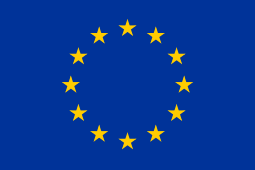
People should be free to move to improve their lives, but the practical objections are substantial.
The majority live in countries with GDP per capita lower than the global average.
In most, infrastructure and essential health and education services are inadequate.
The incentives to move to richer countries are overwhelming. Almost 20m people have left low-income EU countries in the past 20 years.
The IMF said in a report published last year that free labour movement within the EU has been good for countries receiving that labour and for the migrants themselves. But it’s bad for countries losing young and talented people.
Economic objections to free labour movement within the EU, however, have been overshadowed by claims it’s wrecking social cohesion in countries where migrants are going.
The result is profound confusion among champions of the right of the poor to migrate.
That’s precisely where the British Labour Party finds itself at the start of 2017.
It supported remaining in the EU and the single market but around 40 per cent of its supporters voted to leave in the referendum last June.
Labour leader Jeremy Corbyn, a longstanding opponent of the free market principles underpinning the EU’s single market project, has refused to join calls for more immigration controls.
This is cited as a reason for the party’s disappointing opinion poll ratings.
But the electoral problems facing Labour are in fact of its own making.
It’s a historic perversity that a party claiming to represent the poor, weak and exploited supported an organisation that has, through the CAP, increased food prices, restricts government economic intervention and is promoting a free market at a continental level.
It’s puzzling that its sister parties in Europe support the Euro, one of the principal reasons for the high levels of unemployment in EU economies. Their attitude is perhaps a legacy of the ideology of defunct communist movements that admired the Soviet Union and believed the EU would counter American capitalism.
But it’s the consequences that matter and the rise of parties calling for an end to immigration is one of them.
The response is growing calls for the creation of progressive alliances. In the UK, this would involve agreements involving Labour, the Liberal Democrats, Greens and the nationalist SNP.
It looks like electoral desperation because it is.
There is a better alternative. That involves shifting the debate away from the free movement of labour to the free movement of capital.
Prominent critic of conventional economic policies Richard Murphy called in December for action to control capital.
The problem is that controlling capital is impossible when more than 80 per cent of the assets on the balance sheets of Britain’s largest companies are non-physical.
Capital in advanced economies is no longer a thing. It’s a social and psychological construct emerging from legislation and accounting codes not value-creation.
Attempts to control capital that is intangible requires a degree of intervention in social structures and the way people think that would be unacceptably authoritarian and impractical.
The right approach is not to attempt to control capital but to tackle the process through which intangible capital is manufactured. In its purest form, this would involve companies being prevented from counting as assets any capital that is not physical.
If companies can’t invest in intangible capital, they will have to invest in tangible capital: factories, warehouses, land, machinery and equipment. Otherwise, they will go out of business.
Forcing companies to invest in physical capital has two key benefits: it’s much easier to identify and tax their activities and it’s much harder to move physical capital across borders. In contrast, nothing’s easier for owners of intangible capital.
Companies need some intangible capital: money to pay suppliers, employees and creditors. This can be any form of credible fiat money but it should involve a cost that rises the longer this money is held. That would encourage firms to minimise money holdings and maximise investment in physical assets.
In other words, the right approach is to end, almost completely, the free movement of capital.
Companies should invest most of their surpluses in the economies where they were created. In this way, the impetus behind labour movement — the need for workers to follow capital – will be reduced.
And how does the state fit in?
It can reinforce this trend by increasing its investment in the physical assets economies and societies need: roads, railways, airports, ports, power and water networks, schools, hospitals, universities etc.
Companies seeking ways of investing in physical capital can place some of it in such assets.
Ending intangible capital and free capital movement will make a vital contribution to increasing output, employment and fairness in the EU and the world beyond. It’s a radical proposal that makes sense.
People will always want to move to find work and a better life.
But if that’s available where they already are, why should they?